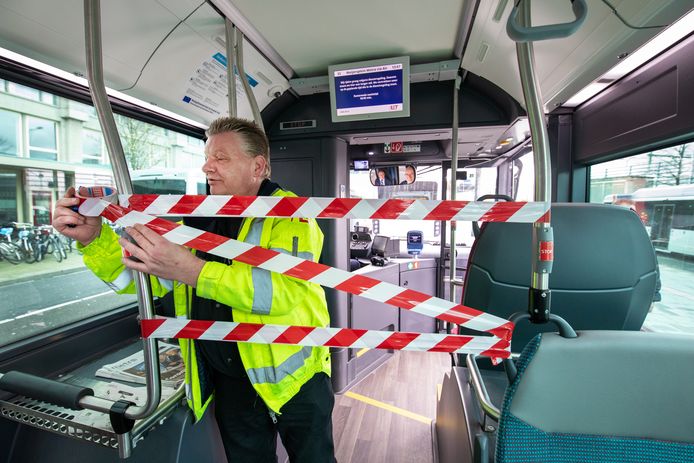Blog
Data management and analytics during active crisis management – The search for the ‘new normal’ in our data
Wibout Van Ede
1 June 2021

Wibout Van Ede spoke about how Rotterdam Electric Tram (RET) make the most of rail data in the webinar ‘Integrated rail data management: emerging trends for unpredictable times’ on 8 June 2021
Historically, public transport in the Netherlands saw steady growth, year over year. Especially in urban areas. That is, until early 2020 when the COVID crisis hit. From that point on we saw predictable strategic and tactical planning, asset procurement and maintenance, workforce planning and operational expansion become quickly replaced by increasingly data driven and more adaptive operations.
The maturity of nearly every data analytics operation can be determined using the ‘analytics ascendancy model’ from Gartner. This model describes 4 forms of data analytics in order of added value and difficulty. One of the logics behind this model is the fact that one needs to understand the past in order to predict the future. Evolving from descriptive analytics to prescriptive analytics is a pathway of evolution, not revolution. But what happens if your business changes drastically and the data referencepoints of the past become irrelevant during a crisis?

The global COVID pandemic resulted in unparalleled disruptions to our operations. Ridership dropped to 25% in the first week of the first national lockdown in March as part of the imposed national and regional COVID measures because of the rapid increase in COVID cases.Additionally, workforce management became significantly harder because of growing employee absence. Furthermore, the crisis began to affect the reliability and availability of our infrastructure and fleet assets. These challenges led to a need for active crisis management and adjustment of a large part of our operations and supporting data. The crisis introduced new performance indicators based on the developing situation and implemented measures by national and local governments.
Within crisis management, we can identify four phases: (1) Preparation (2) Response, (3) Stabilization and (4) Recovery.While the COVID situation is unprecedented, applying this framework of crisis management on the data operation of the RET during the COVID pandemic can be used to draw a few generic conclusions on the use of data management and analytics during an active crisis.

Although the use of data and data driven insights has increased significantly during the COVID pandemic, there are lessons learned that we need to address once the recovery phase has ended. In the end, opportunities to make the data architecture within our IT landscape more agile to support a total adaptive operational planning. In practice this means that we will continue to support this data driven and adaptive planning with temporary dashboards that still need manual support. To be better prepared for the short- and midterm future (recovery phase) we need to use our lessons learned and work on a more agile and verified data architecture, a steady and proven tech stack for creating insights on available data. But the most comprehensive conclusion would be that we need to cement these lessons learned by taking steps toward higher maturity of data operations: a more data-savvy middle and upper management in a data-driven culture and a further development of adaptive operations.
Everything in due time: Let’s first ride out the recovery phase of this global crisis and find out what new reference datapoints and increased data maturity our ‘new normal’ will bring.
Wibout Van Ede will spoke about how Rotterdam Electric Tram (RET) make the most of rail data in the webinar ‘Integrated rail data management: emerging trends for unpredictable times’ on 8 June 2021
Category: Blog
Tags:
About the author

Wibout Van Ede is currently the Head of Operations Support at Rotterdam Electric Tram (RET) in The Netherlands. Dad, husband, avid runner, world traveler and energetic leader, but also an innovative thinker with the ability to enhance business processes focused on adding value with experience in operations, logistics and business consultancy within profit and non-profit organizations. In the past year he led the contingency service planning within RET in the crucial crisis-, stabilization- and recovery-phase of the COVID crisis. Wibout holds an MBA from the Business School Netherlands and Bachelor in Military Science and Operational Studies from the Royal Netherlands Defense Academy.